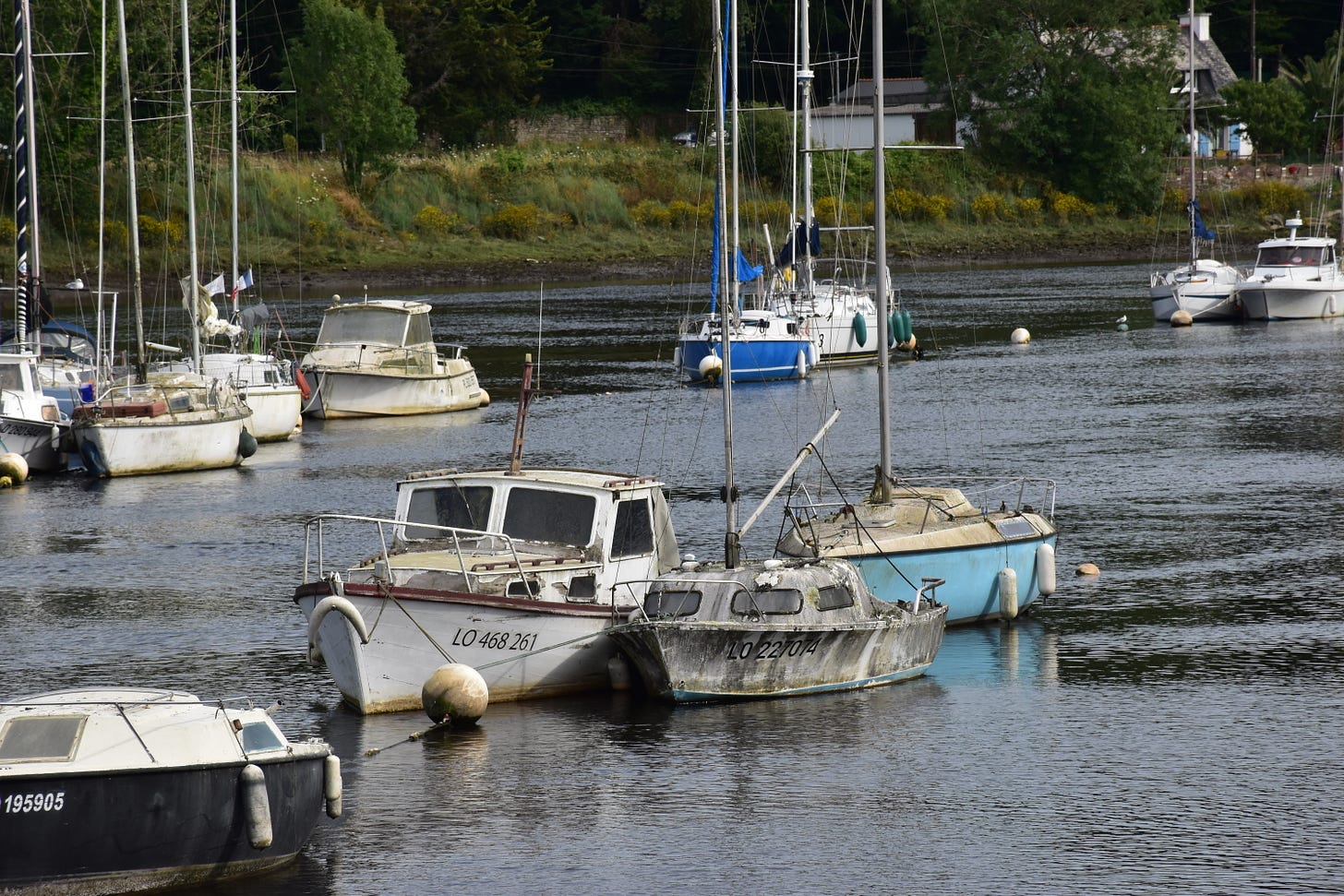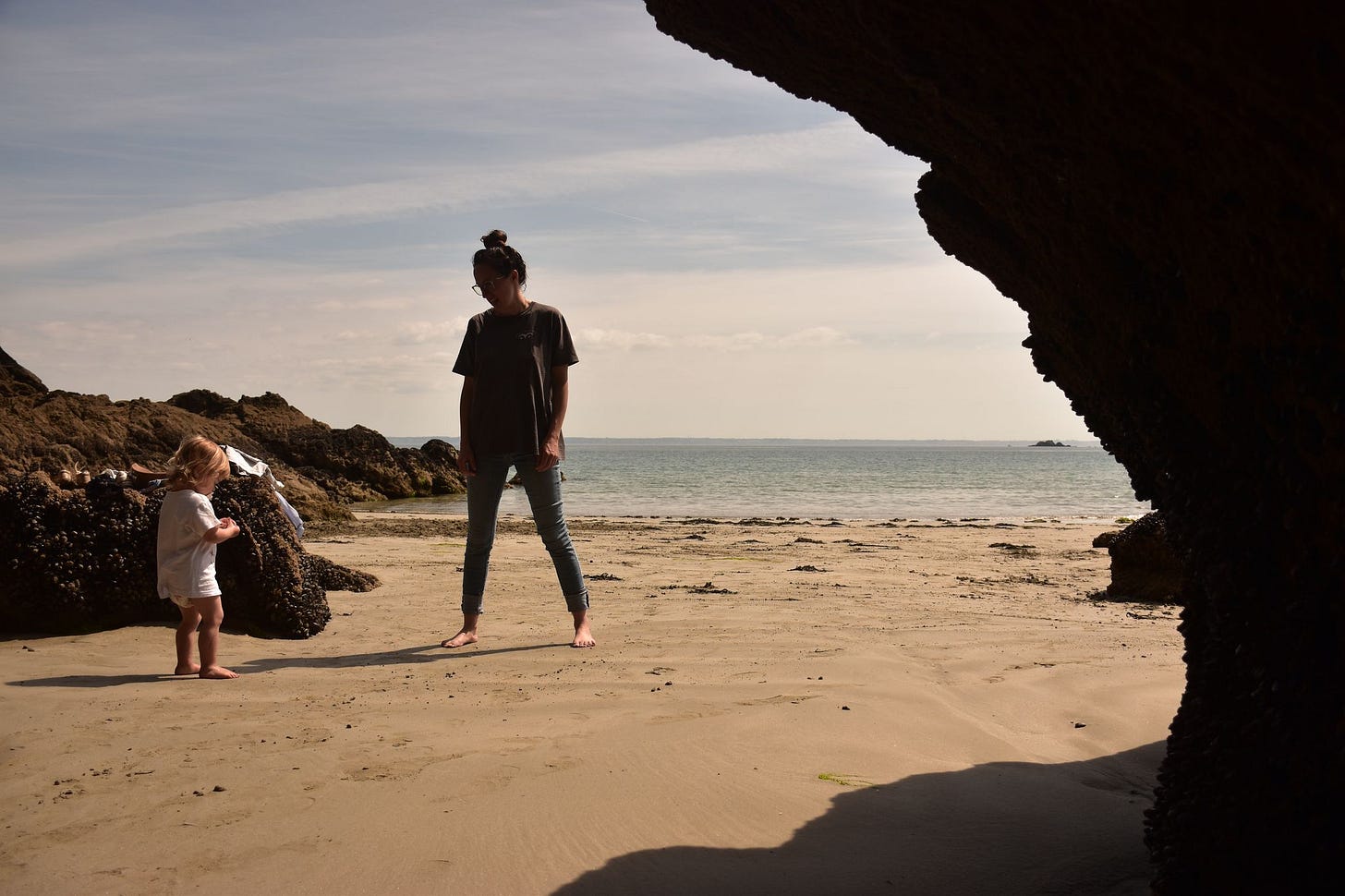Calling Ocean Lovers - Citizen Science Opportunity
Welcoming expressions of interest to join our Regenerative Tides: Sailing for Solutions Project, supported by the European Union.
Hi folks,
A stiff spring wind has been blowing since early this morning. As it hit my cheeks I shifted my gaze towards the ocean we’re blessed to view from our garden and sighted a sailboat tracking west, possibly on its way to later round the infamous Pointe du Raz. We were there Sunday, touring my parents around the spectacular Breton coast on their month-long visit from Australia. One day, not too far from now, the Floating Stories Lab Wharram catamaran will be out there, too, sails and course set, engines stowed, a seasonal wind propelling her along. Until then, each time a stiff wind meets my skin, I close my eyes and visualise the day many of us will join together here in Bretagne to launch our vessel. We hope you’ll be among us!
We have been busy here readying to enter the boat work space imminently, launching FSL as a non-profit, and taking part in an intensive online bootcamp with IMPETUS for our Citizen Science Initiative Regenerative Tides: Sailing for Solutions (ReTISS), which explores the contribution of fiberglass boats to the degradation of coastal habitats and communities. With support from the European Union, our pilot project will run from mid-June to mid-January here in Brittany, engaging coastal communities to actively participate in data collection, environmental education, and advocacy, with an overarching goal of driving sustainable waste management and regenerative design in the marine industry.
ReTISS Overview
Regenerative Tides: Sailing for Solutions (ReTISS) is a grassroots citizen science initiative addressing the overlooked issue of abandoned fiberglass (GRP) boats polluting coastal ecosystems. Over seven months, the project will engage communities in Brittany, France—particularly women, youth, ocean lovers, and creatives—in mapping end-of-life boats, evaluating water and sediment samples using handheld microscopes, and sharing findings through collaborative storytelling. With scientific support from Dr. Corina Ciocan (University of Brighton) and a public database developed by Prof. Ryuya Uda (Tokyo University of Technology), participants will generate open-access environmental data and co-create advocacy materials. A creative residency will further support dissemination. The project strengthens public engagement with science, empowers coastal voices, and demonstrates how citizen-led monitoring and storytelling can influence marine policy and environmental justice.

Join our community of ocean stewards, storytellers, artists, and citizen scientists.
We are currently building a grassroots network of citizen scientists and ocean advocates interested in the project. Whether you're local to Brittany (France), visiting, participating remotely, or just curious for now, we invite you to submit an expression of interest via our online FORM. We welcome women, mothers, sailors, surfers, artists, boat builders, expats, educators, and anyone who loves the ocean. Your responses will help us build a database of potential participants and collaborators.
I am looking forward to receiving your expressions of interests and working together to care for our oceans and aquatic ecosystems!
-Angie
P.S. We are also welcoming donations of gardening gloves, scarves, and a small number of smart phones and tablets for our fieldwork kits — if you are in the EU region, please get in touch directly to coordinate a donation (floatingstorieslab@gmail.com).






